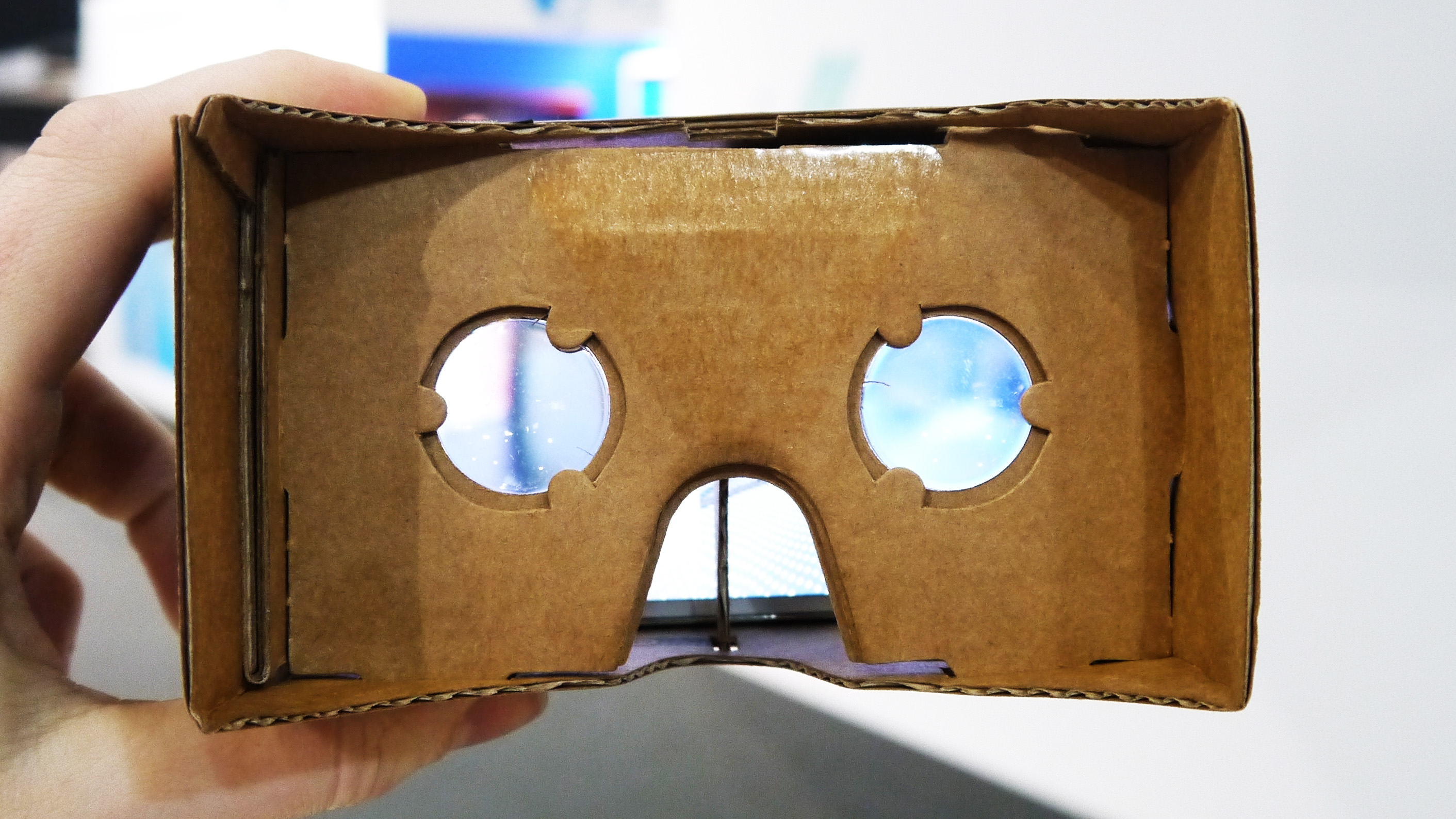A new Google VR headset may have Oculus Rift beat in a big way
Plus a new, more advanced version of Cardboard

Google is working on a VR headset, and while you may think you already knew that, you're only partially right.
The company is said to be working on two headsets, including a completely standalone viewer that doesn't require tethering to a smartphone, computer or game console, according to sources speaking with the Wall Street Journal. This would make it the first standalone VR headset we've seen.
Google is also reportedly working on a more advanced version of Google Cardboard, which we've heard previously. This new version won't just be a paper shell for a phone, but rather come stocked with chips and sensors, according to the WSJ.
A more advanced, perhaps even plastic smartphone-based viewer is a logical move for Google if it can keep it cheap, but the more interesting bit here is the standalone viewer.
Untethered, users could more freely roam and enjoy the experience, not least because they won't need an expensive PC or console set-up to make it possible.
Oculus Rift is shipping for $599/£499/AU$649, but that's just for the headset. When factoring the price of the PC needed to run the virtual reality experience, you're looking at an investment of over $1,500 (£1,035, AU$2,110).
Google's standalone device doesn't sound like it will be cheap, but even at half the price of a full Rift set-up, it already has Oculus' offering beat in a big way. Of course, whether the hardware and experience are enough to convince users to fork over several hundreds of dollars to begin with is another question altogether.
Get daily insight, inspiration and deals in your inbox
Sign up for breaking news, reviews, opinion, top tech deals, and more.
More Google VR headset details
As for the viewer's specs, it's said to have a screen, "high-powered processors" and cameras that face out - so at least we know it has the basics.
Movidius, a company we heard attached to Google a short time ago for another reason, is said to be providing chips that will use the cameras' feeds to track user head motion. That is important because, unlike Oculus Rift, which uses a PC's processors and other external cameras to track head motions, Google's headset could operate on its own.
Just when we'll see the new headset is up in the air. It could be later this year, or it may not be far enough along to release any time soon. Or, Google could decide to kill the product altogether.
As for the updated Cardboard, it may show its face at Google IO in May. Google is reportedly even going so far as tweaking a new version of Android, presumably Android N, to be more compatible with VR. One change potentially coming is the ability for the screen to stay on without the user needing to regularly touch it.
Google is going full bore into VR, making moves that not only HTC, Samsung and Oculus are probably keeping a close eye on, but also Apple. The Cupertino company is said to be developing its own VR headset, though it's unclear what kind of configuration it will ultimately go with. Google is setting the bar high if today's report is true, making the VR wars all the more intriguing.
- Hands on with the HTC Vive
Michelle was previously a news editor at TechRadar, leading consumer tech news and reviews. Michelle is now a Content Strategist at Facebook. A versatile, highly effective content writer and skilled editor with a keen eye for detail, Michelle is a collaborative problem solver and covered everything from smartwatches and microprocessors to VR and self-driving cars.
